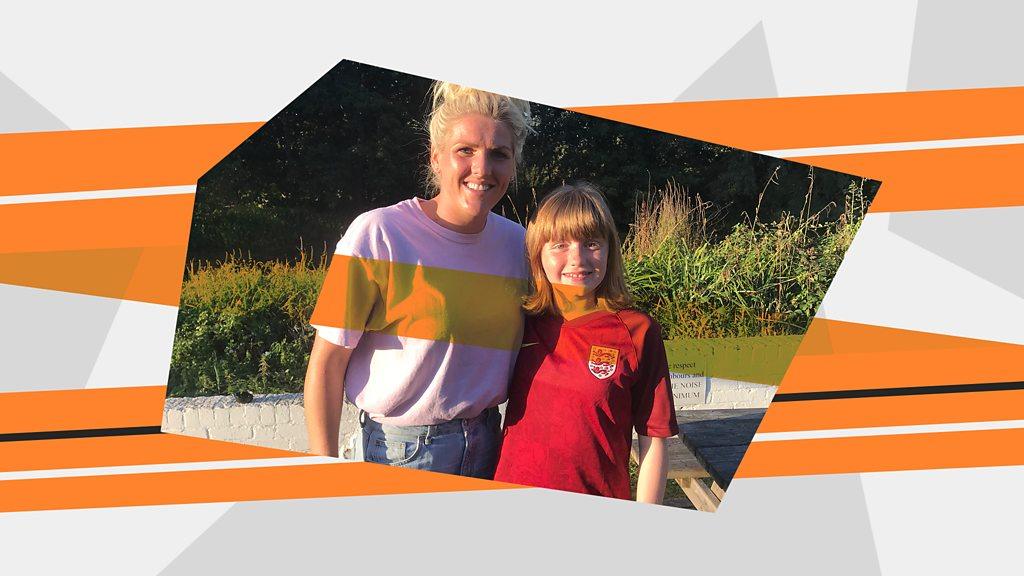Euro 2022: What's next for women's football?
- Published
- comments
What could England's win mean for the future of football?
England made history at this year's European Championships, with the Lionesses winning the tournament for the very first time.
The squad secured the monumental win in front of an 87,000-strong crowd at Wembley Stadium on Sunday evening.
It marks England's first victory in a major international tournament since the men's World Cup back in 1966.
The European Championship final proved to be an incredibly big deal. It became the most-watched women's football game on UK television of all-time and the most-watched programme in 2022 so far, with a peak television audience of 17.4 million.
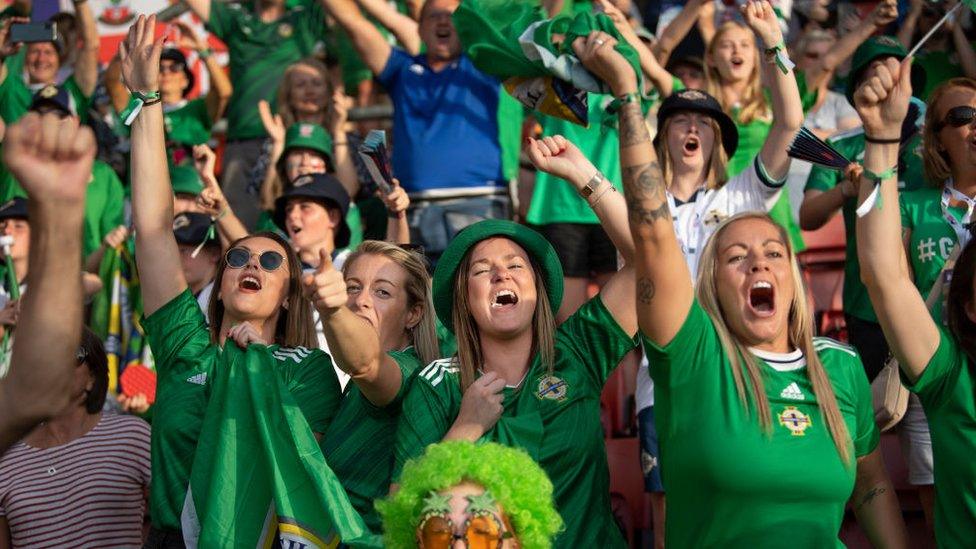
Northern Ireland also made history at this year's Euros
However, it isn't just the big viewing numbers that makes the events of this year's Euros so important.
Women's football has historically faced lots of different challenges, from a lack of funding and opportunities for women and girls to get involved in the sport, to an outright ban on women's football by the FA following the First World War.
Not only has England's win helped to put women's football on the map, but there have been many other positives from this year's tournament too.
Northern Ireland made their first ever appearance at the competition this year, which was an important moment for the country.
It's clear women's football has come a long way, However, many feel there's still lot more progress to be made.
What access do girls have to football at the moment?
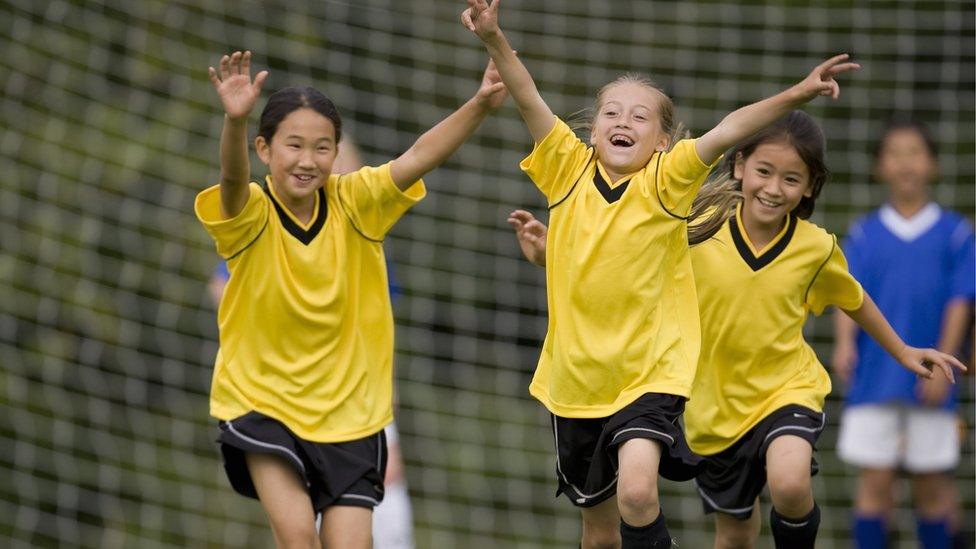
The FA says it aims to get all primary school girls playing football by 2024
The Football Association (FA), which is the governing body for football in England, recently reported that only 63% of schools offer girls' football in PE lessons, and only 40% of schools offer girls regular football lessons outside of school.
The opportunity for girls to get involved in the sport also differs for primary and secondary school students. Overall 72% of primary schools offer football to girls, but this drops to 44% at secondary level.
The lack of opportunities for girls to get involved in football is something lots of people have spoken out about, including former England striker Ian Wright.
"If girls are not allowed to play football in their PE, just like the boys can, what are we doing? We have got to make sure they are able to play and get the opportunity to do so," he said ahead of England's big win.
"If there's no legacy to this - like with the Olympics - then what are we doing, as this is as proud as I've ever felt of any England side."
The FA's National Tournaments Legacy Manager Stacey Mullock talked about the Euros legacy at the start of the tournament
Sports Minister Nigel Huddleston says there's been a big push to get more girls involved in football.
"There has been a deliberate and conscious focus on the strategy of how we can inspire more girls and what the legacy will be of the women's Euros," he said.
I think making sure that young people, in particular girls, can get excited about a sport at school is really important
Speaking about the Euros in particular, he said: "It's great to see a new generation of young girls really enthused about sport, and football in particular. Women's sport is going from strength to strength in this country."
However, others feel there's still a lot more work to be done to ensure girls get the same access to football as boys.
"It's worrying how many people think football is in the girls PE curriculum in high school," said Megan Ball, a 29-year-old girls football coach from Liverpool.
"There's definitely some kind of ongoing narrative that girls must do netball and gymnastics in PE.
"If girls do enjoy football they would have to find the opportunities themselves outside of school and hope they can find a local team or know someone who can point them in the right direction," she added.
Football and diversity
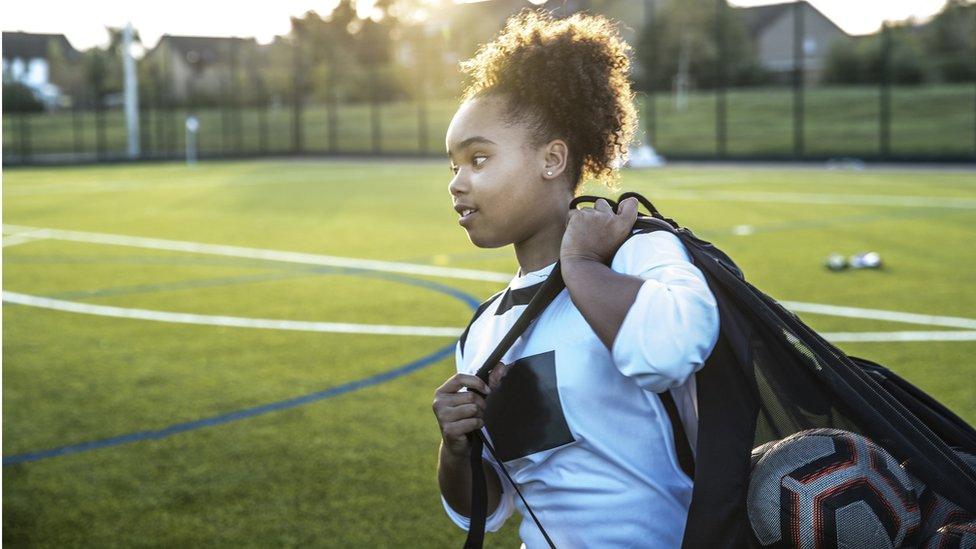
There have been some calls to make girls' football more diverse
There have also been concerns about girls who have faced various barriers getting involved in the sport because of their backgrounds.
This could include those with disabilities, girls from ethnic minorities and those who are less well off.
"It all starts with giving the people more accessibility to be able to play and to be able to enjoy the love of the game without feeling that they might be judged by others or they don't fit in because they're not the typical stereotype of a woman footballer," said one young Muslim player from Football Beyond Borders, an education and social charity which aims to help improve the lives of young people through football.
Fern Whelan, former Lioness and the women's football executive for equality, diversity and inclusion for the PFA said: "I think we are really trying to make some changes and increase that opportunity for girls to play.
"It's not something that will change overnight I don't think, but as long as we can potentially see through the different age groups and through the talent pool that we are getting more players from diverse backgrounds, I think that's what we want to see."
What plans are there to get more girls involved in the sport?
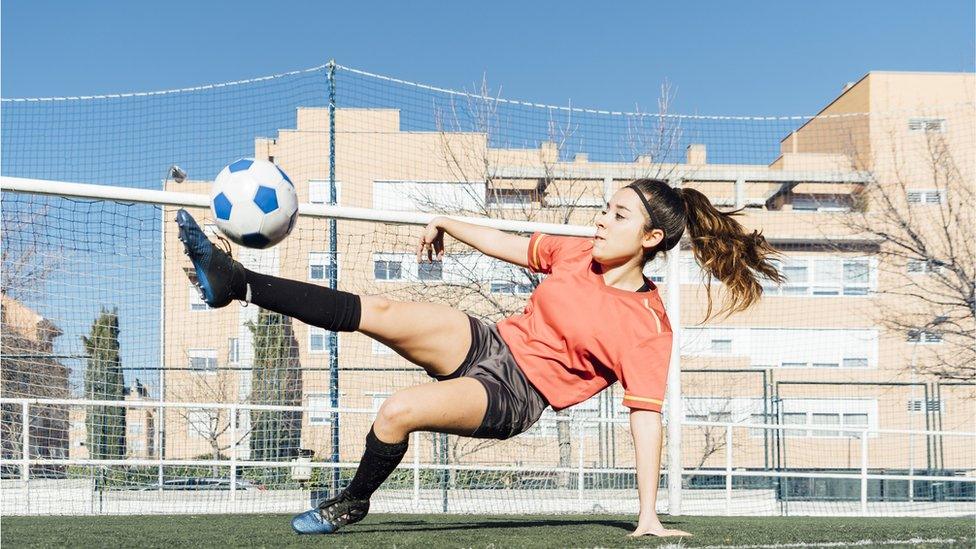
The FA has put a strategy in place to improve the future of football for girls and women
In 2020, the FA launched a four-year strategy aimed at improving the future of football for girls and women.
The strategy lists a number of key objectives the FA hopes to achieve by 2024 including:
Providing all girls in primary schools with access to football both inside and outside of school through PE lessons, grassroots clubs and community football providers
Giving all girls the chance to get involved with football, both competitively and just for fun
Creating a pathway for more girls to play professional football in the future, or to take up other jobs in the sport
Making football more inclusive
How could Euro 2022 win impact women's football in the future?
Sam Quek talks about the Euros legacy
For many, England's success at the Euros isn't just about the win, but it's also the wider impact the tournament will have on girls' football more generally.
"It is hard for me not to get emotional right now because the amount of investment which has gone into the women's game is for a moment like this," said former England player and sports presenter Alex Scott.
For this team to get to Wembley, they are creating something special and deserve every accolade which is coming their way
England captain Leah Williamson said she hoped the tournament could lead to lasting change for the game globally.
"I think the legacy of the tournament was already made before that final game, the young girls and the women who can look up and aspire to be us," she said.
"We've changed the game, hopefully in this country and across the world."
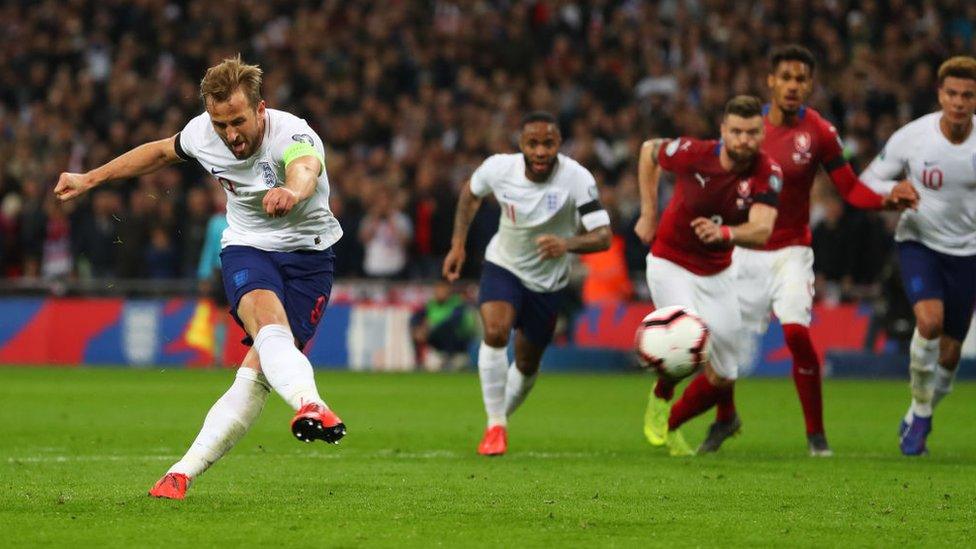
There is still a big pay gap between male and female football players
However, there is still a lot to be done to ensure women and men's football are seen as equal, with one big gap being the income male and female players receive.
The total prize money for the 16 teams competing at the Women's Euros was €16 million (£13.4 million), compared to the €331 million for the 24 male teams who competed at Euro 2020 last year.
"Maybe some people - sponsors, broadcasters and everyone else - should start thinking that it's worth investing in women's football," said UEFA president Aleksander Ceferin at a women's football forum on Sunday.
The Euros have played a important role in pushing the sport into the limelight, however only time will tell what the future of women's football will look like.
- Published6 December 2021

- Published1 August 2022
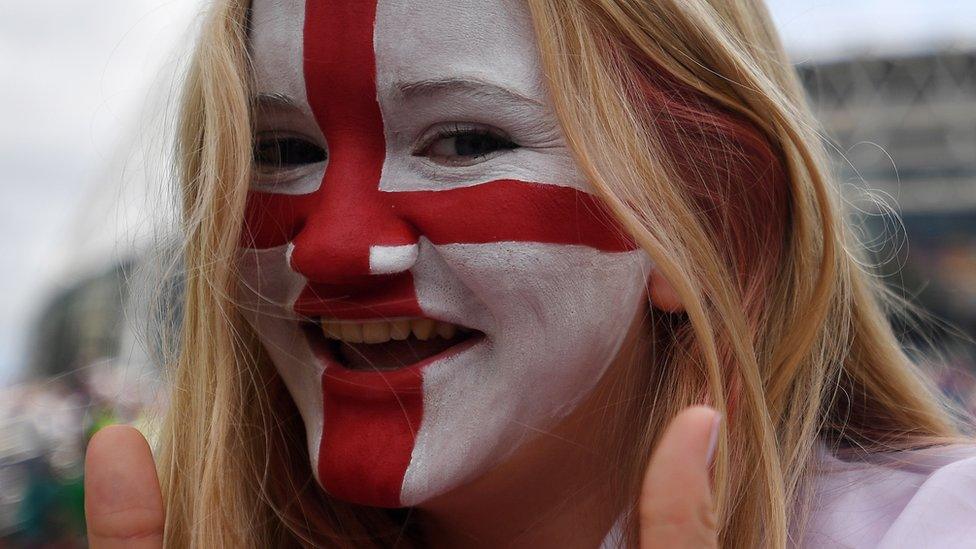
- Published3 November 2019
